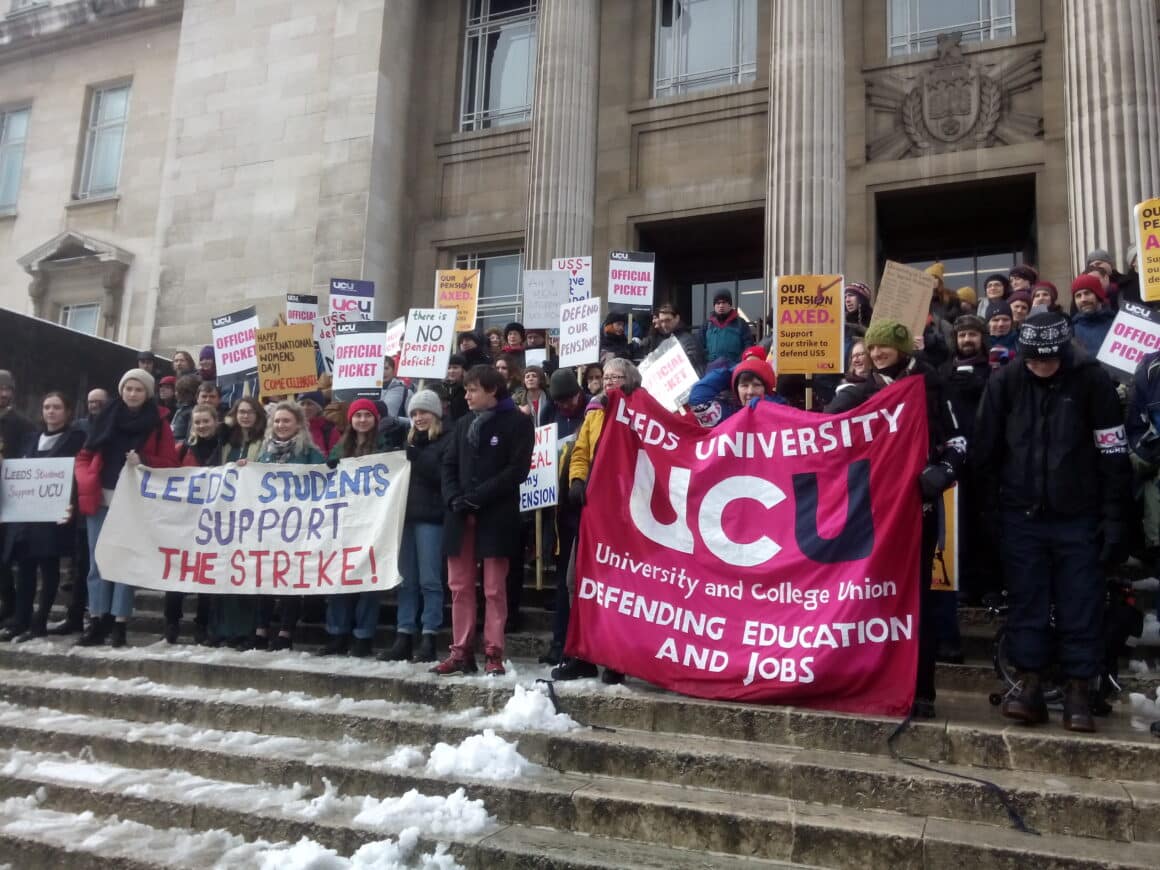

University and College Union (UCU) Higher Education members have voted for industrial action in two ballots over pensions and over pay, casualisation, equality and workloads.
In the ballots 53 per cent of members voted, winning 79 per cent and 74 per cent majorities respectively for action. The 43 universities that met the 50 per cent turnout threshold can now move to industrial action. Others can re-ballot to join the strike.
In spring 2018, HE staff staged their longest strike in British history, with 40,000 staff staying out for two weeks at 64 universities. The strike ended in a truce, with the employer agreeing to review pension arrangements. The following UCU conference became a battleground between rank and file union members unhappy with the deal and a bureaucracy jealously guarding their power.
The inadequacy of the deal was exposed when earlier this year universities announced their intention to increase the staff pension contributions to 9.6 per cent of salaries, meaning the average member would be £44 per month out of pocket. Members of the scheme will pay £40,000 more into their pensions but receive £200,000 less in retirement.
Advocating for industrial action back in August, new UCU General Secretary Jo Grady said, “the aim will be to fix the long-term issues, and not just another temporary fix”.
The second ballot focuses on a series of systemic issues in higher education – casualised work, a huge gender pay gap and crushing workloads. Nearly half of universities use zero-hours contracts and 60 per cent of researchers are on fixed-term contracts.
In a survey conducted earlier this year, 62 per cent of academic staff said their partners see their careers as detrimental to their relationships; 38 per cent of academic staff reported regularly working five hours or more unpaid overtime at the weekend.
Pay has failed to keep up with inflation. Universities are spending less of their budgets on pay and more on new buildings. Despite staff pay falling, more than half of Vice Chancellors have an annual salary of £300,000 a year or more. The pay gap between men and women stands at 15.1 per cent.
Universities have called the ballot result “patchy”, with a “low turnout”. Whilst the turnout is lower than the 58 per cent achieved in 2018 and fewer institutions have met the threshold, members demonstrated in 2018 their willingness to undertake serious industrial action to defend their pensions. The additional ballot on pay and conditions of work has the potential to activate even more of the low-paid, casualised staff – although many of them, to their credit, joined last year’s strike despite being unaffected by the changes.
The last strike saw thousands of members recruited to the union in a vibrant grassroots campaign which waged a bitter rear-guard action to prevent the sell-out of the dispute organised under the leadership of former general secretary Sally Hunt. The fallout from that dispute led to union employees sabotaging the members’ congress, and is a key factor in the depressed turnout in the current ballot.
The lesson is clear: members must take control of the dispute themselves by electing strike committees composed of recallable delegates. Negotiations should be overseen by elected representatives of strikers.
Support from students will be important for what is likely to be a long and bitter dispute. Last year universities tried to turn students against their lecturers, blaming staff for the strike, which they caused by cutting pensions. A massive solidarity campaign on campuses, with students joining staff on picket lines, would send a powerful message to universities to invest in staff rather than shiny new buildings and Vice Chancellors’ salaries.